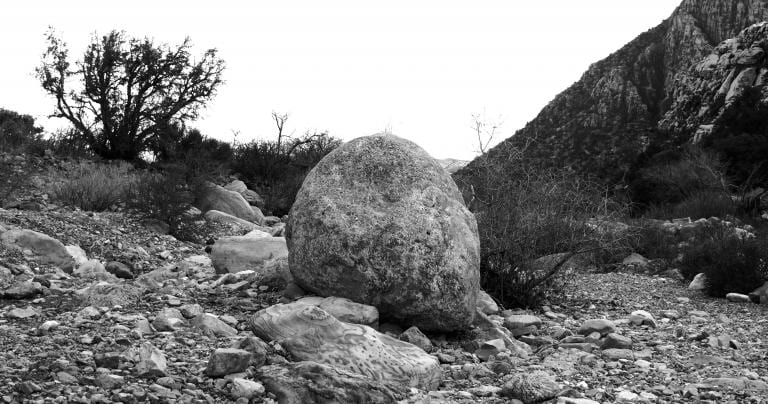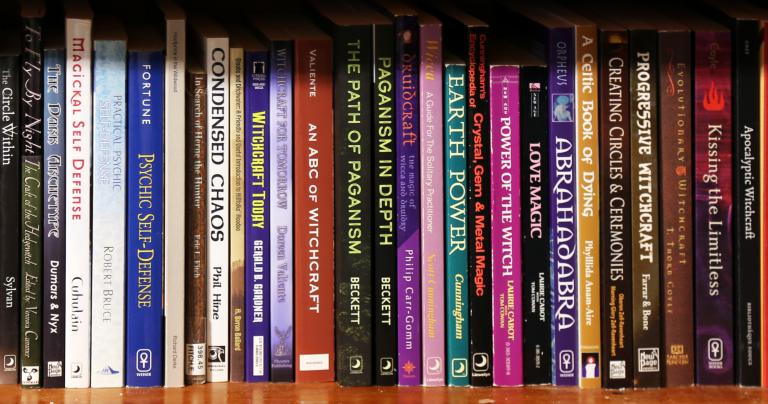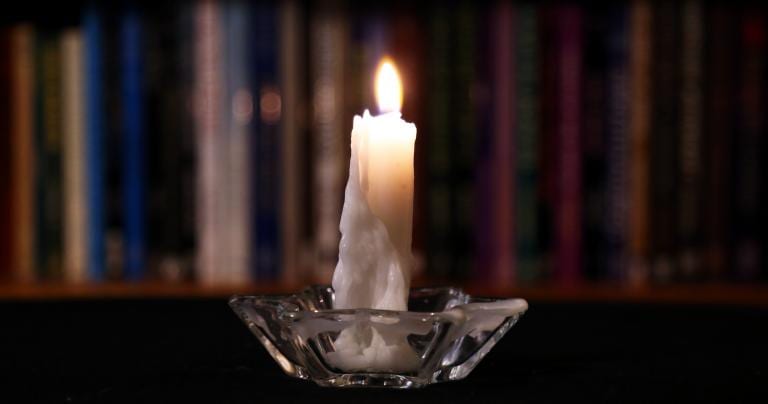Yesterday I heard about two long-time Pagans who suddenly reverted to Christianity. The report mentioned the Coronavirus epidemic along with other natural disasters, though it did not go into their precise reasoning.
A while back I came across the diary of someone very dear to me who died several years ago. Their life was in shambles and they were trying to put it back together with a Buddhist approach. But their Buddhism was very shallow – it was more New Age than anything the Dalai Lama teaches. On their deathbed they called for a priest to confess their sins and receive absolution.
I’m a polytheist who believes many Gods call many people in many ways, and I’m a universalist who believes you can live a good life – and attain a good afterlife – following any religion (well, almost any religion – you can’t do either as a member of Daesh or the Westboro Baptist Church). What matters most is how we live and especially how we treat each other, not which God we do or don’t pray to. So if someone needs to revert to a previous religion for whatever reason, I support their decision.
But I would be lying if I didn’t admit that these events sadden me. Something in Paganism (or in the other case, Buddhism) called to these people and they spent many years exploring it. They built beliefs, practices, and relationships. But when things got tough it wasn’t enough.
I am disappointed but I am not surprised. Over and over again, we see people who get into stressful situations – especially when they think death may be imminent – and fall back on the religion of their childhood, even if they left that religion for a very good reason.
It’s tempting to dismiss these people as “never really Pagan anyway.” It’s also a mistake. Until you’ve faced a major crisis you can never be 100% sure how you’ll react. This could be you.
Build a Pagan foundation
Begin with a good intellectual foundation that accepts the inherent uncertainty of religion, and that respects the reality of religious experiences – especially your own religious experiences. Learn to see the Divine in Nature, in the Gods, in community, and in yourself. Honor your ancestors and learn about their religions – and not just the religion of a few of your ancestors in a very specific point in time.
Read. Read good Pagan books, good history books, and good science books. Think and meditate on what you read and discuss it with your Pagan friends.
Worship the Gods. Do ritual. Work magic.
Need a guide for all this? Consider The Path of Paganism. I’m not trying to drum up book sales so much as I’m encouraging everyone to build a Pagan identity that will be there for you when times get tough. This book is how I did it.
Deal with your religious baggage
Do you have unresolved issues with a previous religion? Do you still harbor fears that it might be right and that you’re on your way to hell? Suppressing these thoughts doesn’t make them go away – it just drives them deeper into your soul, winding them ever tighter like a spring, just waiting for a breaking point when they’ll all come crashing back to the surface.
Read Escaping Fundamentalism. It’s my story of escaping one particular form of toxic religion, but the process will work in any context. Stop the bleeding, do the work, find a group, expect pushback and relapses, and keep working.
Mainly, understand that it’s difficult if not impossible to simply dismiss bad religion from your life. Doing that leaves a vacuum that has to be filled with something, and what’s familiar is most likely to seep back in.
Instead, crowd out bad religious experiences with good religious experiences. My first Pagan initiation went a long way toward replacing the bad with the good. My first hand experiences of Gods and spirits did most of the rest. And an intentional religious rite finished it off.
That took 15 years – fundamentalism had some particularly deep and nasty roots in me. You may be able to do this much faster. But if I hadn’t started I never would have finished.
Start now.
Daily spiritual practice
Pagan, Christian, Buddhist, or anything else: there is no substitute for daily spiritual practice.
We’re all busy with work, school, family, and all the other elements of ordinary life. Our mainstream culture constantly tries to grab our attention so they can convince us we need to buy what they’re selling. We need something that keeps our attention on what we decide is most meaningful.
Prayer is my core spiritual practice – I pray four times every day. Meditation is how we calm our minds, and how we listen for our Gods and spirits. Offerings maintain good relationships across the realms. Following the sun and the moon and just being outside on a daily basis help us stay connected to Nature. There are many spiritual practices. Find the one(s) that work best for you.
How much time should you spend on spiritual practice? The Dalai Lama spends about six hours a day in meditation, prayer, and study. I don’t know anyone who does that much – or that can do that much. For most people an hour a day is amazing. A half hour is very good – and probably doable. 15 minutes is good, and five minutes is infinitely better than nothing.
Need help in getting started? Search “spiritual practice” on this page – I’ve written a lot about it over the years.
If you’re in a crisis of faith right now
The best time to do all this stuff is when things are going well. Then when times get tough you’ll have a foundation of robust Pagan beliefs and practices – and a strong Pagan identity – to help you get through difficult times.
But maybe you didn’t do that, for reasons that made perfect sense at the time. Maybe you started but you haven’t had time to complete what you need to build. Or maybe you did but it’s not enough and you feel pulled back to a religion you thought you were done with.
The first step is to recognize that you are where you are and there’s no shame in that. It’s OK to feel what you feel. If that’s fear, so be it. Address it rather than trying to deny it.
Remember that you left your old religion for a very good reason. Maybe they were abusive and controlling. Maybe they insisted you deny who you are or who you love. Maybe they said you had to believe things you couldn’t honestly believe. So you got out. If you go back, you’ll be walking back into the same trouble.
Accept the inherent uncertainty of religious questions. I’m convinced my particular form of Paganism is the closest there is to Truth, but at the end of the day I have no way to know for sure. Neither do the Catholics or the Baptists or the Sunni Muslims – and neither do the atheists. Some religions are convinced they have exclusive possession of Truth. They are all mistaken.
Given this uncertainty, which approach makes the most sense to you? More importantly, which one calls to your soul?
Remember what it was that attracted you to Paganism. For some it was a Goddess and not just a God. For others it was magic, or the Divine in Nature, or the beliefs and practices of our ancient ancestors. Maybe it was the emphasis on doing the right thing instead of believing the right thing. Whatever it was, remember it.
Now go practice. Watch the sunrise, stand under the moon, or hug a tree. Read one of your favorite Pagan books. Cast a spell.
It’s OK to pray for help. Doubt is not a sin, and while our Gods are not divine helicopter parents, neither are they callous to our needs. Meet Them halfway and make an offering to go along with your request – practice good reciprocity.
Don’t expect everything to be OK right away. No religion can do that – especially the ones who claim they can. Keep doing what you need to do. Keep doing what calls to your soul.
You’ll get there.
Paganism is not a proselytizing religion – we don’t get points for “winning” converts, or for keeping them. I want you to be a happy and fulfilled participant in whatever religion is best for you. I hope that’s one of the many Pagan and polytheist religions. But if it turns out to be Christianity, I wish you well… just please don’t go back to fundamentalism!




















